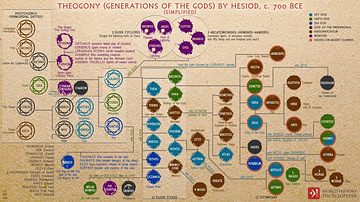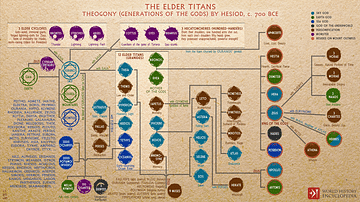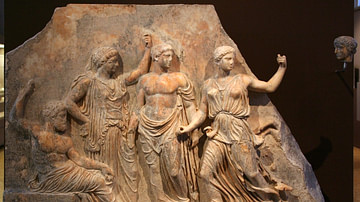Illustration
This infographic illustrates the Twelve Olympian Gods (Dodekatheon), central figures of ancient Greek religion believed to reside on Mount Olympus. Each deity ruled over key aspects of nature, society, or cosmic order, forming a divine hierarchy that shaped Greek belief, mythology, and identity from the Mycenaean period through classical antiquity.
Their canonical list includes Zeus, Hera, Poseidon, Demeter, Athena, Apollo, Artemis, Ares, Aphrodite, Hephaestus, Hermes, and Dionysus. Though Hades was Zeus’ brother and a major god, he was excluded from Olympus as ruler of the underworld. The Olympian pantheon was first recorded in literary form by Homer and Hesiod in the 8th century BCE, but their origins trace back to Mycenaean-era deities (c. 1600–1100 BCE). Alternate traditions sometimes included Hestia, Leto, Heracles, or Asclepius, reflecting regional and cultic variation.
About the Author
Cite This Work
APA Style
Netchev, S. (2024, October 01). The Twelve Olympian Gods of Ancient Greece. World History Encyclopedia. Retrieved from https://www.worldhistory.org/image/19516/the-twelve-olympian-gods-of-ancient-greece/
Chicago Style
Netchev, Simeon. "The Twelve Olympian Gods of Ancient Greece." World History Encyclopedia. Last modified October 01, 2024. https://www.worldhistory.org/image/19516/the-twelve-olympian-gods-of-ancient-greece/.
MLA Style
Netchev, Simeon. "The Twelve Olympian Gods of Ancient Greece." World History Encyclopedia. World History Encyclopedia, 01 Oct 2024, https://www.worldhistory.org/image/19516/the-twelve-olympian-gods-of-ancient-greece/. Web. 29 Jun 2025.








